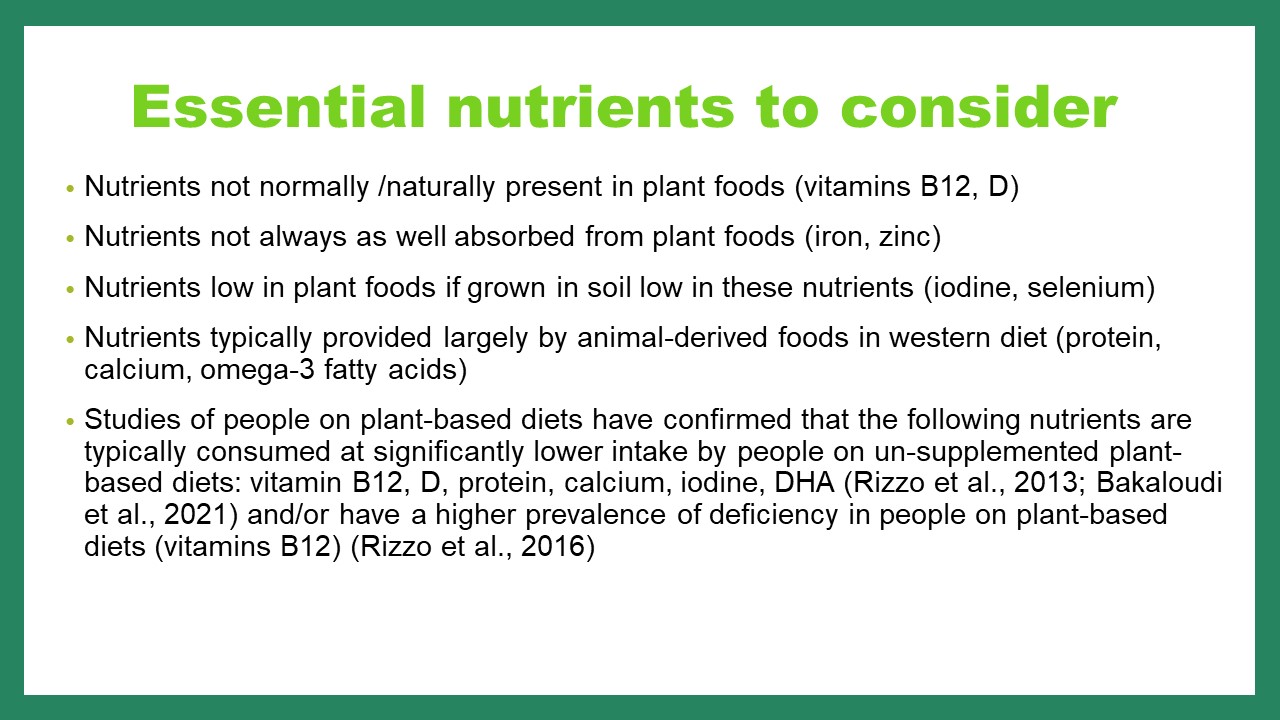Nutritional adequacy in plant-based diets presented by Dr Amanda Benham, PhD, APD
 Review by Anthea Talliopoulos, APD
Review by Anthea Talliopoulos, APD
There has been a surge of interest over recent years in plant-based diets related to ethical, health and environmental concerns. However, caution must be taken in ensuring that plant-based diets are nutritionally adequate and optimised to prevent nutrient deficiencies. Dr Amanda Benham explains how to achieve a nutritionally adequate plant-based diet, discussing key macronutrients and micronutrients, as well as relevant supplementation.
Micronutrients such as B12, iron, zinc, iodine, vitamin D, selenium and calcium are critical. When B12 in considered, supplementation, especially in a stand-alone supplement (rather than a B12-containing multivitamin) in the form of cyanocobalamin can ensure an optimal B12 status is achieved. The impact of phytates (highest in foods such as wholegrains and unsoaked legumes) on the dietary absorption of iron and zinc should also be considered, with iron absorption being enhanced with vitamin C or citric acid, and zinc absorption being best-enhanced by protein and citric acid. With regard to omega-3s, Amanda explains the importance of considering the ratio of linoleic acid (LA) to alpha-linolenic acid (ALA), to ensure optimal conversion of ALA to EPA and DHA, with dietary sources such as flaxseeds (at even 1 teaspoon per day), being adequate.
For a plant-based eaters diet to be nutritionally adequate, meal planning is key. Amanda points out that using the Australian Guide to Healthy Eating (2013) as a basis for dietary planning in plant-based eaters will lead to nutritional deficiencies. She details the simple yet effective robust method of meal planning for plant-based eaters that she has designed, which ensures nutritional adequacy.
Summary:
- There has been a surge of interest over recent years in plant-based diets related to ethical concerns, health impacts and environmental concerns.
- Key micronutrients to ensure in a plant-based diet include B12, iron, zinc, iodine, vitamin D, selenium and calcium. In considering optimal nutrient absorption (especially of iron and zinc) in plant-based foods, the effect of phytates should be considered, with thoroughly soaking and rinsing beans increasing nutrient absorption.
- When macronutrients in the form of dietary fats are considered, omega-3s in the form of alpha-linolenic acid (ALA) with sufficient linoleic acid (LA) should be consumed daily, such as through 1 teaspoon of flaxseeds or 5 walnuts per day.
- Working with individuals to ensure that a plant-based diet is tailored to their needs and that nutrient targets are met can ensure that the benefits of a plant-based diet can be achieved.

To register for the presentation and associated documents including the assessment quiz click here